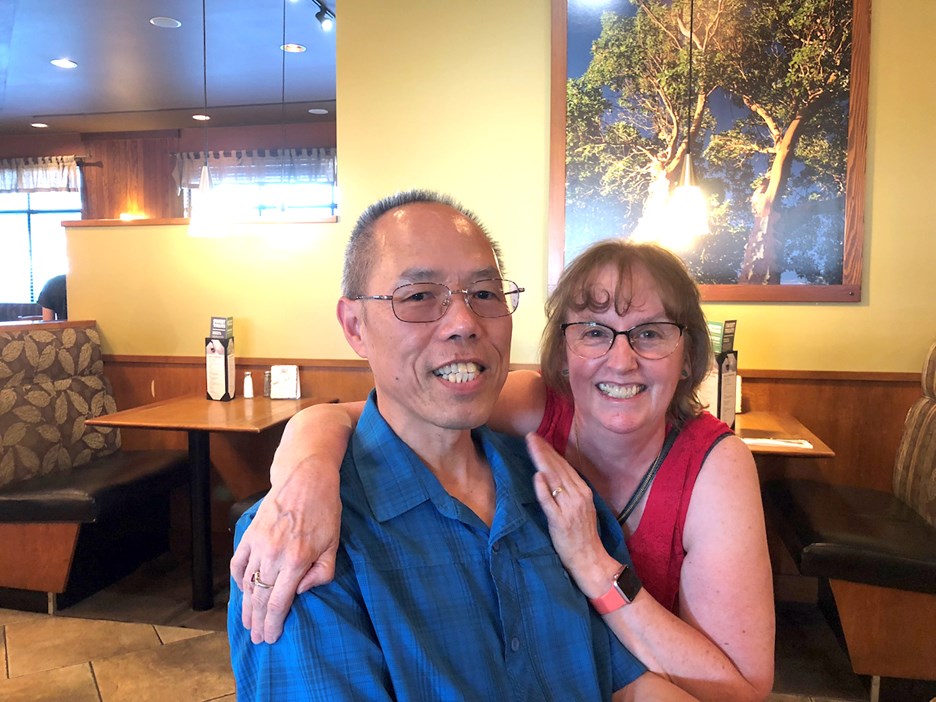The change in Kelvin Cheng was subtle at first, says his wife Linda.
But a wife notices these things.
“He was forgetting things more and more often,” said Linda. “That’s why we knew something might be wrong.”
After a variety of tests, Kelvin – a Burnaby resident - eventually received a diagnosis of Alzheimer’s disease in early 2018. Their family doctor recommended they connect with the Alzheimer Society of B.C.
Now the Burnaby family is going public to raise awareness about the ongoing discrimination they experience in their day-to-day lives.
Linda and Kelvin say they feel lucky because whenever they talk about the diagnosis, people are supportive and often tell them about other people who have also been affected by it. It can make it easier for people living with dementia to stay active community members when people are familiar with the disease and open to talking about it.
The problem is people sometimes get frustrated with Kelvin.
“We want people to know they just have to be patient when they meet someone living with dementia,” Linda says. “Kelvin’s still the same person he was before. He just needs friendship and to be able to keep doing the things he enjoys.”
A program assistant who worked at Vancouver Community College for 33 years, Kelvin retired five years ago but has stayed active and is committed to staying engaged after his diagnosis. He plays badminton three times a week.
Linda and Kelvin are some of many Canadians who are stepping forward with their personal stories in the Alzheimer Society’s nation-wide campaign, “I live with dementia. Let me help you understand.”
Spurred by alarming research indicating that one-in-four Canadians would feel ashamed or embarrassed if they had dementia, the campaign gives a voice to Canadians living with dementia who are frustrated by the constant assumptions and misinformation associated with the disease.
“Unless you have experienced it firsthand, it can be difficult to appreciate the damage stigma can do to individuals and families facing dementia,” said Susan Prosser, support and education coordinator for the Alzheimer Society of B.C.’s North Fraser resource centre. “Too often, negative feelings, attitudes and stereotypes surrounding dementia dissuade people from seeking help and discourage others from lending their support. By providing a platform for Canadians to share their stories, we can cultivate empathy and compassion and help break down the stigma so that Canadians living with dementia can live a full life.”
To read their stories and find out how you can help in the fight against dementia stigma, visit ilivewithdementia.ca. The site also features practical information and downloadable materials, including key myths and facts about the disease, as well as social media graphics to help spread the word about the campaign. Visitors to the site can also connect with the local Alzheimer Society resource centre for help and support.



